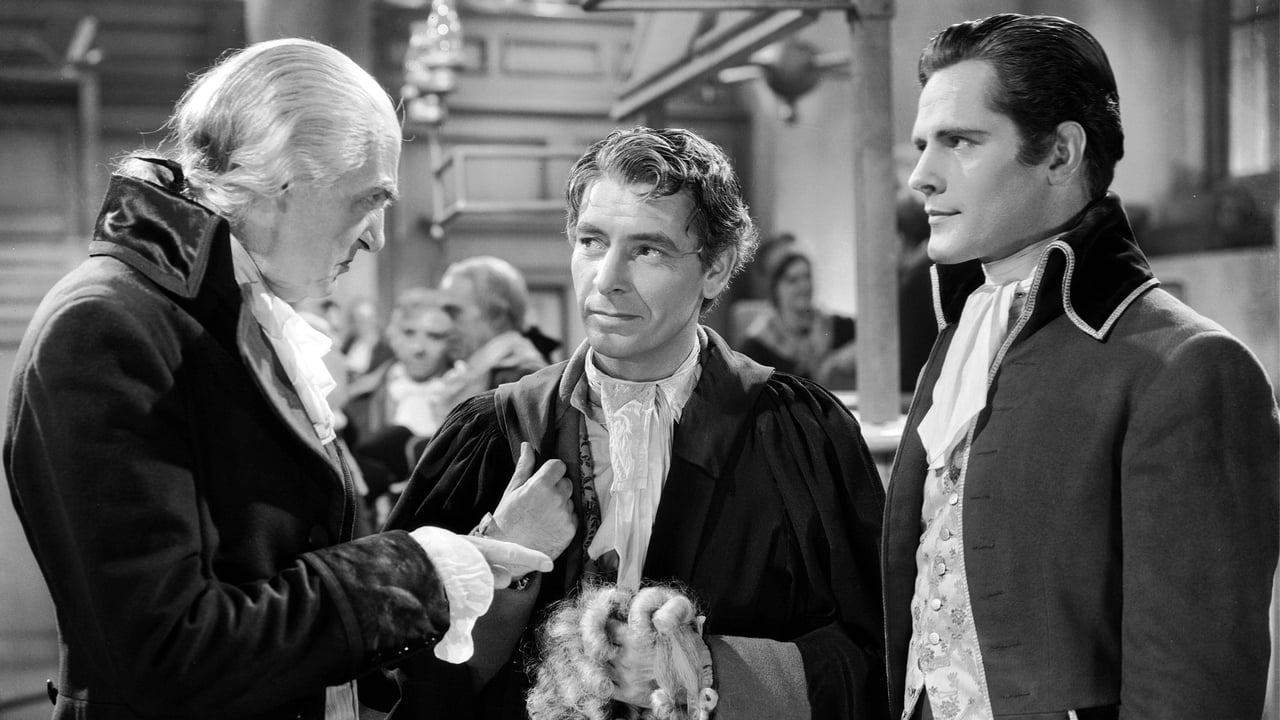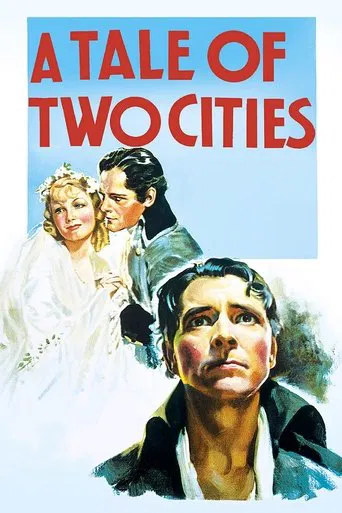

I was first introduced to Charles Dickens' Tale of Two Cities in an 8th grade English class. When reading it was assigned I skimmed through the text without so much as a thought to the story. Later, when advised a test was to include questions on the story, I immersed myself into it and found myself enraptured with the story, the characters, the redemption and sacrifice of Sydney Carton for those he grew to love.Growing up in the 50's and early 60's, one was without knowing it at the time, gifted to watch multiple TV showings of now classic movies from the 30's, 40's and early 50's every afternoon.Maybe because I was discovering the opposite sex but I so identified, at fifteen, with Sydney Carton and his unrequited love for one he could not have, and his ultimate sacrifice for Lucie as a way of winning a place in her heart forever.I watched Sydney's apathy with life and his resignation to never fulfilling goals he had probably felt so close to his grasp at an earlier time. Ronald Coleman's performance was one I have felt since with each viewing.I have a niece that at 15, began providing her DVD's of the classics. The first was a Tale of Two Cities and even now, at 21 with a child of her own, she always jokingly tells me that she hates me for enlightening her with that movie as she has always felt that Sydney should not have switched places, no matter how noble the reason because she felt he and Lucie should have ended up together.Even though I always point out the improbability of that and of the deeper notions of true love and the nobility of the ultimate sacrifice when called for, she remains unchanged and I smile because I know the everlasting impression that the story will remain with her forever.I just gifted her with a beautifully printed, gold leafed edition of the book and instructed her to read it to her daughter when old enough, so she can also pass on a classic beautiful story by Charles Dickens and the Ronald Coleman film as well.Unfortunately, I never had children of my own but know I have passed on to this beautiful, intelligent young woman a gift of classic appreciation.
... View MoreThat is alongside the likes of David Lean's Great Expectations and Oliver Twist. A Tale of Two Cities is a classic novel, and is just as classic a film. The costumes and sets are accurate and look beautiful, and the film is photographed handsomely. The music score is stirring, the pace and dialogue are crisp and the direction is never plodding or overdone, just right in fact(an achievement considering the massive crowd scenes). The story is compelling and mostly faithful, with the magnificent Battle of Bastille and heart-rending cut-off of the final scene between Madame La Guillotine and Sydney Carton the standout scenes. The cast are wonderful. Donald Woods is the least effective, but that's more to do with the fact that the rest are so good rather than that he's bad. Ronald Colman gives a performance of great nobility here and Elizabeth Allan does her best as Lucie, the character I always cared for least in the novel. Edna May Oliver is a warm and humorous Miss Pross and Blanche Yurka is a frightening and bitter, yet we also feel some element of sympathy, Madame Defarge. Reginald Owen is his usual solid self, same with Lucille La Verne, and while Basil Rathbone has had meatier roles in other films like Adventures of Robin Hood, Anna Karenina and Romeo and Juliet(let's not forget Sherlock Holmes either) he still makes for an excellent aristocrat. All in all, a wonderful film and one of the finest films adapted from Charles Dickens' work. 10/10 Bethany Cox
... View MoreA movie begins with the words. In this case the words of the immortal Charles Dickens (and this is once when saying someone is immortal that it's not an exaggeration). But then, screen writes must take the words in the novel and condense the story down to about 2 hours of film. And it is that step that makes or breaks many a film. And here it was done brilliantly. And I really mean that. When you think of all that is in the novel "A Tale Of Two Cities", the screen writers here were able to successfully sift all those contents down into what was the crux of the story.Next is the cast. And here, the highly respected Ronald Colman, a unique actor, plays...NOT Ronald Colman. The famed mustache is missing. Instead of being sophisticated he is a drunkard (albeit one with a heart and character). In the Colman biography written by his daughter, it is said that for these reasons, this was, perhaps, Colman's favorite film. As you watch the film, however, you realize that the screen writers knew that the film was not about Sydney Carton, it was about the French Revolution. So although it is a Colman starring vehicle, his screen time is what the story demands, not what a movie star demanded. Make no mistake, here, Colman is Sydney Carton.The excellence in casting is not restricted to Colman. Elizabeth Allan is perfect as Lucie Manette. Character actress Edna May Oliver has one of her most engaging roles as Miss Pross, Lucie's servant. Blanche Yurka is a truly menacing Madame Defarge. Henry Walthall is exceptional as Dr. Manette. Walter Catlett is appropriately talented as Barsad. Claude Gillingwater is perfect as Jarvis Lorry, banker and friend of the family. H. B. Warner is unforgettable as Gabelle, the servant of an aristocrat. And, toward the very end of the film, Isabel Jewell is stunning as the Seamstress about to be executed...a brief, but memorable performance (the first few times I saw this film I thought it was an early performance by Lana Turner). Donald Woods' role as the husband-in-law of Dr. Manette and descendant of a French aristocrat has been criticized in reviews for his performance, but I'm not so sure that he's that bad; it's just that everyone else is so darned good.Should we be surprised that this is a near-perfect film? Let's see, producer -- David O. Selznick. Primary star -- Ronald Colman. Director -- Jack Conway (perhaps his finest film). Studio -- MGM.And the ending. Tastefully done. ""It is a far, far better thing that I do, than I have ever done; it is a far, far better rest that I go to than I have ever known." Perfection on film.
... View MoreI consider Dickens one of my favorite authors, but the truth is I've only read a few of his works. I haven't read "A Tale of Two Cities," but I was not surprised to find it a very compelling story, populated by memorable, likable characters, graced with intriguing drama, and commenting on the cruelty and injustice perpetuated by both sides of the French Revolution. Some characterizations and flourishes are a bit too much (the storming of the Bastille, although wonderfully constructed by Lewton and Tourneur, is marred by some over-the-top titles) but for the most part it's a rock solid film, easily watchable and quite enjoyable. Excellent production value and strong performances. It made me want to read the novel, which is perhaps the finest thing an adaptation can accomplish.
... View More